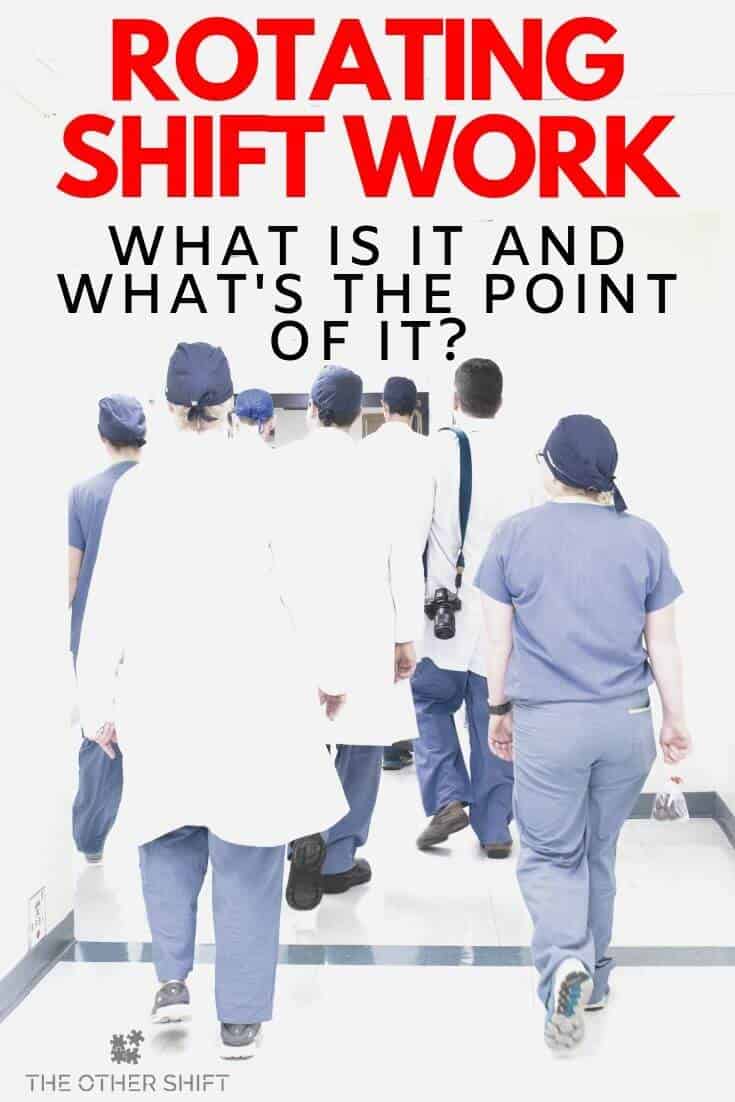Disclosure: This page may contain affiliate links, meaning we receive a commission if you decide to make a purchase through our links, but this is at no additional cost to you. Please read our disclosure and privacy statement for more info.
The first time I took melatonin after working a night shift, it didn’t work out well. Unknowingly to me, the dose was excessive and I took it too close before waking. I was left feeling lightheaded, dizzy and lethargic. So my naive self got smart and did some research. I want to share exactly what I found regarding taking melatonin while working 3rd shift, so you can dodge the same mistakes I did.
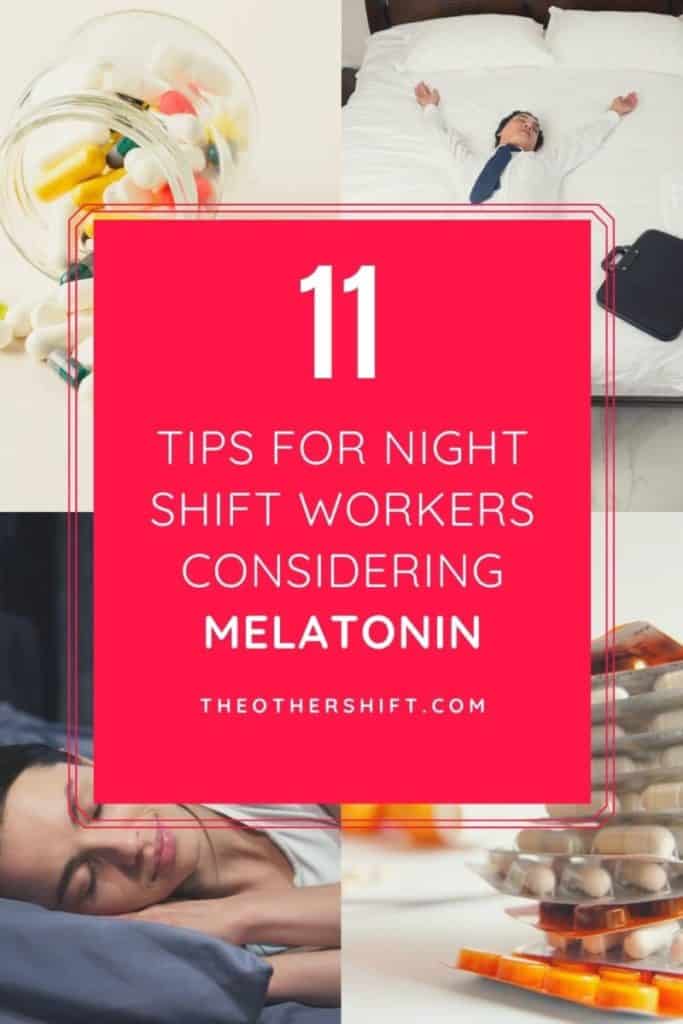
When working night shift, taking 1-5mg of melatonin 1-2 hours before bed may be effective in obtaining high-quality day-time sleep. The effects of melatonin may be increased through the use of other night shift sleep aids and consuming foods naturally high in melatonin like oats and bananas.
For some, melatonin may seem like the silver bullet to sleeping while working the night shift. But like everything, including a dietary supplement like melatonin, side effects can come into play. Let’s dive into my 11 favorite tips for taking melatonin while working the graveyard shift.
1. Only Take Melatonin If You’ve Tried Everything Else Whilst Working Night Shift
This may seem like an odd place to start, but this is by far my favorite tip.
When taking melatonin, I’ve had great daytime sleep. There is an almost absent risk of tolerance and dependence and the numerous research studies I’ve looked at all speak of a positive impact. After all this though, I still recommend trying other methods first.
Despite the success stories you hear from other night shift workers and the research in this area, there is always a “but” or a “take caution” when consuming something from the bottle, which I want to avoid (if I can).
With other methods, there is less risk and potential complications involved and I think my health is worth the time figuring out what works. Even though it may not get me the quickest result…
Here are a few things I would try first, before popping a melatonin:
- Install blackout blinds (see our favorite ones here)
- Wear blue light blocking glasses
 at least 90 minutes before bed
at least 90 minutes before bed - Wear an eye mask (this one is our favorite) and earplugs
- Use a diffuser, fan or white noise machine
- Listen to sleep music, an adult audiobook or story
- Read a novel
- Drink chamomile tea
- Use a weighted blanket, like this incredible one from YnM. See it here via Amazon.com
- Enjoy foods naturally high in melatonin such as bananas, oats and walnuts. See our post “What Should I Eat After Working Night Shift?” for some great ideas.
Check out our resources page here where we explore our favorite shift work tools and why we love them. We don’t always recommend the most expensive stuff so I’m positive you will find something to suit your budget.
It is then and only then, if all these things don’t work, you should dive into your “emergency stash” of melatonin high up in the medicine cabinet, to give you some relief.
Don’t get angry or disappointed at yourself (which I have felt before) if these other methods don’t work and you do need a dose.
Melatonin is deemed safe and even effective in helping not only those with insomnia and jet-lag, but also night shift workers like us messing around with our circadian rhythm or body clock. (source )
)
“…Although melatonin can help night workers obtain more sleep during the day, they are still likely to face difficulties working at night because of circadian rhythm misalignment.”
(Journal of Sleep Research)
The thing to remember here is I always get into bed after a night shift with the positive thought I am going to fall to sleep naturally.
Convince yourself that the natural methods will work and you’ll hopefully have a much higher chance of success…
Melatonin works to reset our body clock, but you shouldn’t rely on it as a generalized sleep aid to treat your sleep issues and insomnia. The rest of this post will explain why that is…
What Exactly Is Melatonin?
Melatonin is a natural hormone produced in the brain that does three things;
1. It maintains our circadian rhythm (body clock)
2. It helps us sleep
3. It supports other body systems such as our immune system, cardiovascular function and reproductive health. (source)
The amount present is dependent on the time of day, rising in the evening and falling in the morning. Light at night blocks its production which is often the problem when working night shift and trying to sleep during the day. (source)
“This is why people who are blind or work night hours can have problems with maintaining normal levels.”
Dr. Axe
Below is a video published by Health Line which explains what melatonin is, the benefits, risks taking it and what you need to think about.
2. Take Melatonin 1 – 2 hours Before Bed
The timing of when you take melatonin is important and something I struggled with in the beginning, as I explained in the intro.
It’s recommended to take melatonin 1-2 hours before sleep, giving it time to be released into the body to start doing its job. Most won’t feel any effect until at least 30 minutes after taking it, so be patient.
However… be careful about taking it too soon before you have to get up.
In my experience, you will wake up feeling horrible and worse than before you got into bed.
For example, if you wake up during the day at 1pm and you don’t need to be up until 3pm to pick the kids up from school, don’t take it. Your brain does not have enough time to process the hormone kick before you need to drive and be responsible for your kids. Instead, pick up a book, stretch or listen to an audiobook and then try to sleep natually again.
The recommendation is to not drive or use machinery for four to five hours after taking melatonin.
So set a rule for yourself. If you wake up in the middle of the day and happen to look at the clock and have more than 5 hours of “sleep time” left -take it. If not, try something else.
This post titled, “How to Fall Asleep Quickly Even When You’re Not Tired” will provide plenty of inspiration.
We also have some weird tips for falling to sleep you’ll want to check out here. Number 7 and 11 are my go-to methods when nothing else is working.
Melatonin is classified as a dietary supplement – not a drug or vitamin
Because of this, melatonin doesn’t go through the same tough guidelines and testing as medications by the U.S. Food and Drug Administration. When browsing for your “emergency” stash of melatonin, look for a “USP Verified” mark, which indicates that the tablets and formulation meets the requirements of the U.S. Pharmacopeial Convention. Similar to what’s seen on the right side of this bottle.


(click to see on Amazon)
3. Melatonin Can Impact Other Prescriptions You’re Taking, So Be Careful
Are you taking other medications to help with aches and pains, heart issues, epilepsy, diabetes or pregnancy?
“Melatonin can decrease the effectiveness of some medications while actually decreasing side effects from others”
According to Dr. Ax an online health expert
Here is a small list of medications that aren’t recommended to be consumed in conjunction with taking melatonin after night shift.
- Antidepressant medications
- Antipsychotic medications
- Benzodiazepines
- Birth control pills
- Blood pressure medications
- Tablets to control your heart rate also known as beta-blockers
- Medications to thin your blood such as warfarin.
- Steroids and immunosuppressant medications
- Anti-inflammatory medications. This is a big one for me as I often take non-steroidal anti-inflammatory drugs (NSAIDs) after a night shift to relieve pain for my legs, if I forgot my compression socks. These are the socks we recommend and why.
(Source)
Are you taking any of these tablets?
Don’t be discouraged. Make an appointment with your doctor and work out a plan of attack together. Don’t just “risk it” or give up altogether. There is always an option to try to help you get quality day time sleep.
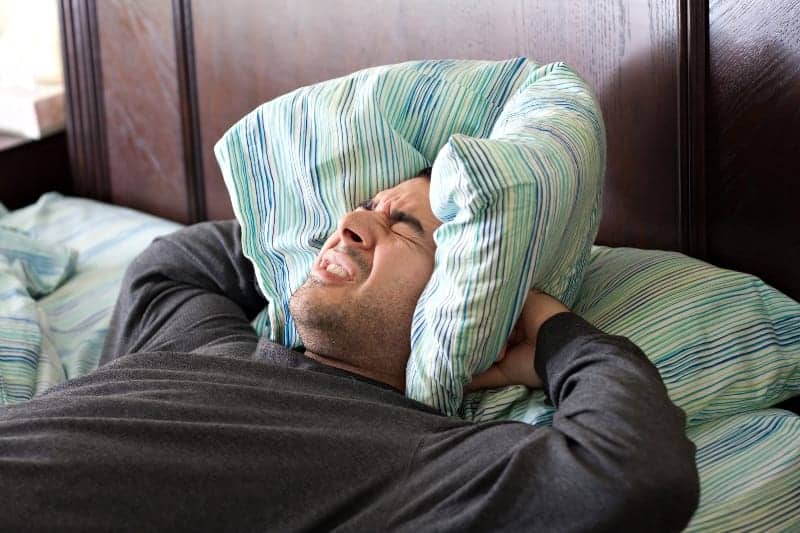
4. Start With The Smallest Melatonin Dosage
All melatonin medications are not equal. The dose might (and probably will) vary from brand to brand so you need to be cautions.
After having that horrible first melatonin experience, this really shocked me. Aren’t there rules around this sort of thing? Shouldn’t there be a standard level of dosage that is consistent regardless of the brand?
It seems not, as it’s a “dietary supplement,” (hormone actually) and not a drug specifically…
A really interesting study said that,
“melatonin content of dietary supplements often varies widely from what is listed on the label”.
Another study found that “some products have much more melatonin than is indicated on the label,”(2)
This seems really scary to me and provides another good reason why taking melatonin is only a “last resort”
So what does this mean for us working the night shift and wanting to take melatonin?
Two things.
Firstly, buy from a reliable source like a well-known pharmacy chain, health food store or online brand you recognize and trust. Don’t just buy the cheaper brand despite the number of positive reviews.
Secondly, start with the smallest dose then work up if you need to.
You just don’t know if 5mg is really 5mg... it could be 6-7-8mg leaving you feeling pretty average. So in my opinion – Less is more.
The other funny thing about taking melatonin is the little doses are thought to mimic the bodies natural volumes of what’s produced, better than the large amounts. (source)
If you take a HUGE amount, the body knows it’s not real. So the response to this dose may not actually be effective and in some cases, it can cause more harm than good.
I often think to myself, maybe I woke up feeling like I had been hit by a bus because the dose was just too much?
I took x1 tablet of 5mg and in retrospect maybe I only needed 1-3mg?
What About the “Extra Strength” of Melatonin?
This is normally the tablets 10mg + (and this dose scares me a lot!).
Just because you are feeling extra tired and the bottle says “extra strength” it is most likely too much. Especially if you have just started taking this.
In saying that, it is deemed safe, and could be appropriate for some night shift workers in the short term.
Always check with your doctor before taking this much melatonin. I know seeing a doctor the morning after night shift is generally not very helpful, so stick to the 1-3mg pills until you have an appointment. Again, don’t just take it.
According to Dr. Axe,
“It’s important to know that higher doses of melatonin don’t equate to better sleep“.
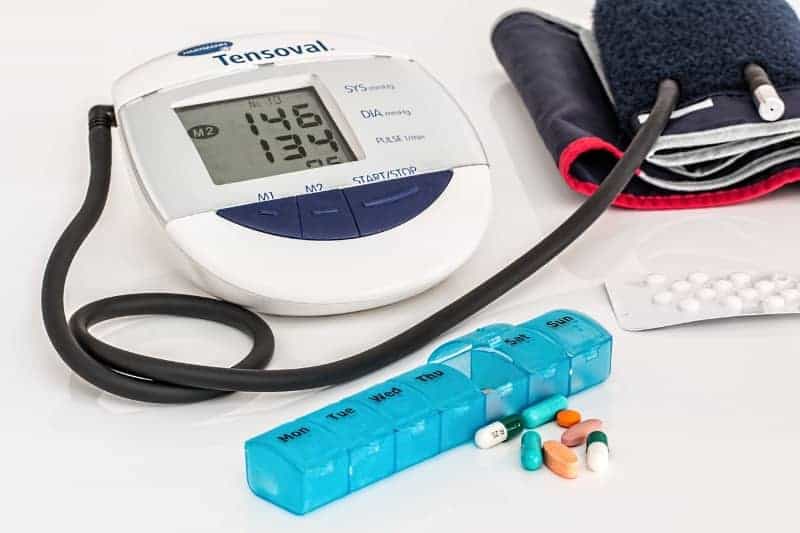
Bottom line: How much melatonin should I take?
There are no set guidelines as it’s not regulated by the Food and Drug Administration (FDA). The dose differs depending on current health issues, age, reasons for taking it, and length of time taking it. However, for those struggling to sleep after a night shift 1-3mg is a good starting point.
5. Your Dreams Could Be Horribly Vivid (But They Will Pass)
Have you experienced vivid dreams while taking melatonin?
I have.
There are two trains of thought here. One is linked to the dosage amount and the other is you’re simply getting more Rapid Eye Movement (REM) sleep. Let me explore both in more detail.
Firstly “melatonin nightmares”, as they are commonly referred to, could be a direct link to simply consuming too much melatonin.
Your body has received too much of one thing causing other chemicals to intervene and “balance out” what it’s feeling. These dreams could be a good indicator you need to tone it down in the dosage department.
Remember, don’t ever start at the maximum dose. Melatonin is a hormone – not a drug or vitamin and needs to be treated very differently.
The second theory here is that those who are taking melatonin, such as night shift workers, are suddenly enjoying more REM sleep.
This is called “REM rebound.” REM rebound occurs when someone has been sleep deprived for some time and then has an injection of deep sleep, thus resulting in hectic dreams. Melatonin can impact this process.
It was concluded that these crazy dreams generally become less vivid and bizarre as our body clocks normalize and “reset,” such as when we take a lower dosage or move back to day shift. (source)
The hangover feeling should not become a “normal” side effect
Don’t become accustomed to this. It’s generally linked to the dose of the melatonin you’re taking. Start small in regards to the dose. (Source)
6. There Are Different Forms of Melatonin If You Can’t Swallow Tablets
Do you have trouble swallowing tablets? No problem. There is more than one way to take melatonin after a night shift:
- Tablet (hard and chewy). Most common purchase method and you don’t need a prescription.
- Topically (cream). Did you know we can also apply melatonin in a cream? It can help boost skin quality as it forces the skin to repair, renew and revitalize during the night (or day). It has also been used to treat burns. (source). Try applying this cream from Amazon to the soles of your feet, your wrists and around your knees and temples just before bed. The relaxation you’ll feel is amazing.
- Sublingual (under the tongue). Often used to reduce anxiety before surgery.
- Injected into the vein. Often used to treat tremors in medical settings.


(click to see via Amazon)
7. Coffee, Tobacco and Alcohol Can Lower Melatonin Levels
Who likes to have a beer, coffee or cigarette after a long night shift?
I have, on a few occasions, joined my nursing colleges after an exhausting night shift to debrief at the local pub thinking a wine would help me sleep. But guess what, it doesn’t.
And it seems even if you complement it with a few tablets of melatonin it doesn’t get better.
Caffeine, alcohol and nicotine all decrease the levels of melatonin in the body and by taking a melatonin supplement further confuses your body clock.
If you need a drink after work, warm milk and cherry tart juice are all naturally high in melatonin and great options. I totally get they might not be as exciting… but keep the beers in the fridge for the weekend…
Here are a few posts you’ll find interesting if you’re feeling peckish after a night shift:
- Is Surviving Night Shift with a Morning Beer a Good Idea?
- How Long Does It Take to Adjust to Night Shift?
- 6 Quick and Healthy Night Shift Breakfast Meal Ideas
8. Melatonin Can Help You Switch From Night Shift to a Day Shift Schedule
Making the switch back to a day time schedule from night shift is no easy feat. You could be going on vacation, enjoying the weekend or simply have a few days off and want to be social with your family.
Melatonin can help “reset” your internal clock to make this happen quicker.
When making the “switch” back to day shift, there are a few other things I consider first before taking melatonin. Again, I like to try all options before taking a pill if possible. Here are a few things I use to help me transition back to the day shift.
Use the sun
In between night shifts and especially after your “short sleep” on your final night, open the blinds and let the sun in. Take a walk outside and let the vitamin D hit your skin. Melatonin works directly in relation to the light and dark signals from the sun. So why not use the natural source instead of the synthetic form?
Avoid heavy, stressful conversations before bed
You don’t need another thing to think about when you’re already worried about sleeping. “Sleep on it” and revisit these chats when you wake up.
We have an entire post about swapping back to the day shift quickly from night shift that we recommended taking a look at here. It gives you plenty more tips to feel less like a zombie quicker!
However, there is always a but, right?
According to The National Sleep Foundation, “inappropriate use of melatonin can backfire and increase sleep problems”.
So also chat with your doctor not only about the dose, but also the right timing when opting to try it while adjusting back to the day shift.
Why is this important?
Well, you are now taking melatonin for a totally different reason… you are wanting to “reset” your body clock and not simply fall to sleep. This can change the game for when and the volume of dosage take.
9. It Is Possible to Overdose on Melatonin
Despite not being a “drug” it is still possible to overdose.
As there are no standardized or recommended doses it makes the whole dosing thing difficult. Experiencing a “mild” overdose is probably more common as people suss out what’s right for them.
This can be a dangerous experiment, particularly if your job requires you to have your wits about you…
Here are some of the symptoms you might see and feel if you take too much melatonin:
- Headaches
- Dizziness
- Daytime sleepiness (commonly seen with Shift Work Sleep Disorder SWSD – read more here)
- Short term feelings of depression
- Stomach cramps
- Irritability
- Decreased libido
- For men, breast enlargement (gynecomastia) and reduced sperm count are also possible
…. the last two were a shock to me too.

Take away message…
We are all different. The dose for one night shift worker may not be the same for you, so take it easy. This is not an episode of “keeping up with the Joneses.”
10. Stop Taking Melatonin If You’re Not Seeing Results Within Two Weeks
The opinions here seem to vary, but a consistent message among most seems to be, that if melatonin is not helping you sleep within a week or two, stop using it and find an alternative.
However, if taking melatonin after you finish a shift allows you to sleep for the recommended 7-9 hours of sleep, it’s safe for most people to take it nightly for one to two months.
In some cases, it was even used for up to two years consistently. However I should mention, those in the study did experience some side effects like headaches. (source)
But what about long term use over two years?
Despite my hunt in scouring the net, there appears to be a lack of long-term studies. So nobody really knows if it’s safe for extended use.
There is one opinion I found, however, that said taking it for an extended time encourages laziness in the pineal gland (this is the gland which normally produces melatonin). This is because we are taking it in tablet form so it doesn’t need to function like it used to. This is no good because the gland can become calcified and hardened over time leading to all sorts of dramas. (source)
But the jury is still out…
If you find yourself at the point of using for a few months, again stop and review your sleep. (source) You might be surprised by how you are able to sleep for a full 7-9 hours uninterrupted…
An important note here though is if you’ve been taking a high dose of melatonin for a while, this will not just magically clear from your system overnight. This can take days, weeks and even months if you’ve been taking it for a significant period.
Did you know…
While melatonin is available over the counter in the USA, it is a prescription-only drug in most other parts of the world… Makes you think maybe there is more to it?
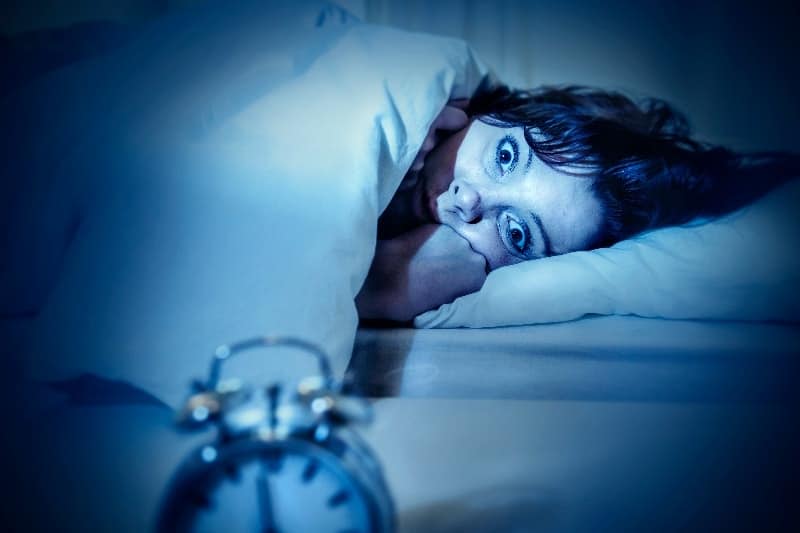
11. Don’t Take Melatonin on Night Shift If…
There are a few reasons to steer clear of melatonin such as:
- If you are pregnant. Melatonin can interfere with other hormones, like the growth hormone and can increase the risk of developmental delays in unborn children
- You’re breastfeeding. Confirm this with your doctor.
- Have an autoimmune disorder as it may interfere with current treatment
- If you suffer from a seizure disorder as it may increase the risk of seizures (however the reviews are mixed – source)
- Been diagnosed with depression as it can make symptoms of depression worse
- Trying to fall pregnant as melatonin might also interfere with ovulation, making it more difficult to become pregnant.
- Have high blood pressure as it can further raise your pressure levels
- Have diabetes as melatonin can raise sugar levels
- Have a bleeding disorder
- If you’re already taking sleeping pills such as zolpidem (Ambien) and clonazepam (Klonopin) because together they can make you WAY TO sleepy.
Good to Know…
“Melatonin seems to shorten the amount of time it takes to fall asleep, but only by about 12 minutes”. It does not appear to increase the time a person actually spends sleeping despite people often reporting it does” (source)
Alternatives to Taking Melatonin After a Night Shift
Magnesium
Magnesium is a natural muscle relaxant that blocks cortisol (our stress hormone) production in the brain to create a calming effect. It also naturally supports the production of melatonin inside the body which seems like a better idea then simply taking more hormone?
See: Which Vitamins Should I Take on Night Shift?
Theanine
L-theanine is the technical name for this substance found in tea leaves. It’s linked to helping us sleep among a range of other amazing health benefits (source). But which tea will you find it in?
Green, black and moringa are your best bet. Just don’t take this right before bed, as tea also contains small doses of caffeine. This should be consumed throughout your “day” and not within 4-5 hours of bedtime.
Glycine
You may not have heard this name before, but it’s a type of protein which can boost our sleep and supports whole-body health. Do you find it easier to sleep when the air conditioner is on and the fan is going? Well, that’s because our body naturally cools when we sleep.
Glycine helps to move blood into or extremities, our hands and feet which reduces core body temperature. (source) Taking glycine tablets could be an effective way to fall to sleep. See glycine here on Amazon.
These three methods could be a safer way of falling to sleep after nights and are well worth a shot after your next night shift before simply opting for melatonin.
Next…
- Essential Guide to Working a Rotating Shift Schedule
- How Long Should You Sleep Before A Night Shift?
- How to Stop Falling Asleep While Driving after Night Shift
Summary: 11 Tips For Night Shift Workers Considering Melatonin
Taking melatonin after working a night shift can be very effective when trying to fall to sleep. Just remember to start small in regards to how much you’re taking and think twice if already taking other medications.
If you start to feel any side effects, see your doctor and lower the dose. And lastly, remember to not take it too closely before you need to get up – we don’t want you operating the day like a zombie.
Happy Snoozing!
Cheers,

Disclosure: This page may contain affiliate links, meaning we receive a commission if you decide to make a purchase through our links, but this is at no additional cost to you. Please read our disclosure and privacy statement for more info.

